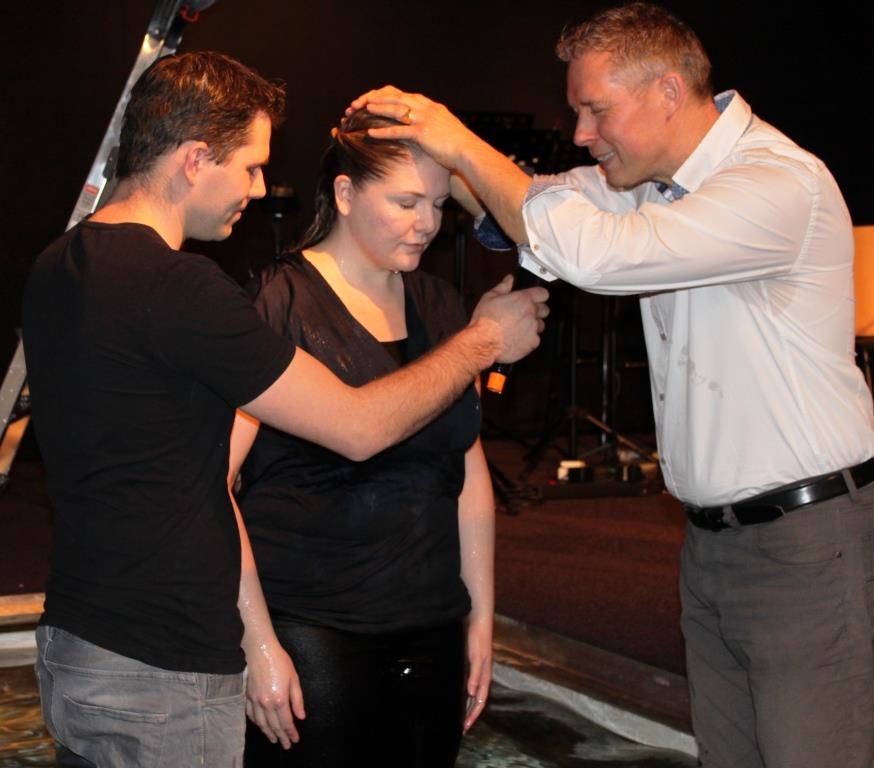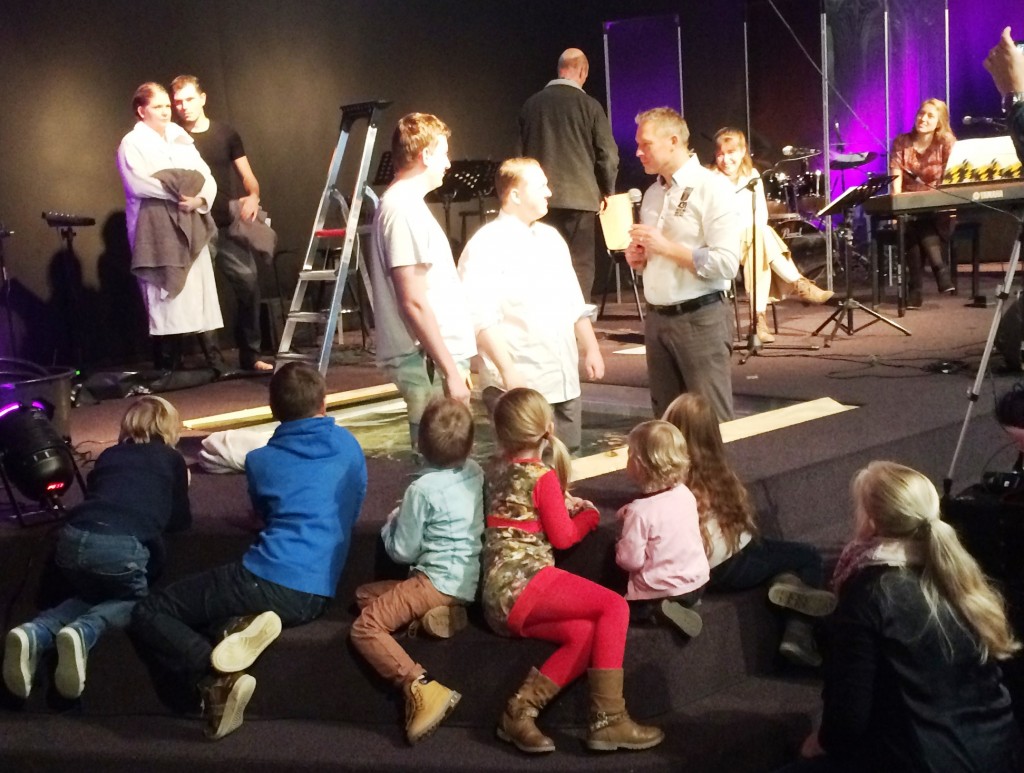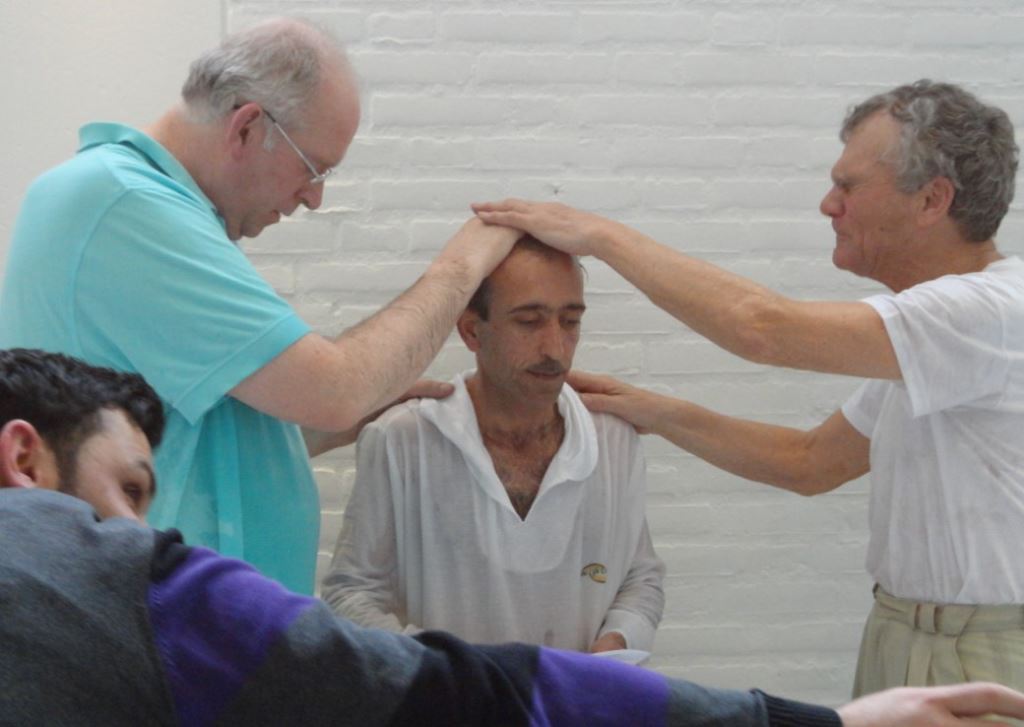GCI in the Philippines is celebrating both the baptism of new members and the completion of 50 years of membership by one of its pioneer members. To read more, click on the links below.
Year: 2016
Justified and sanctified in Jesus
Dear Brothers and Sisters,
 As foundational doctrines of the Christian faith, justification and sanctification are loaded with meaning and historical significance. However, they often are misconstrued, resulting in misunderstanding the related doctrines of salvation by grace and the Christian life. Though we can’t explore these doctrines in depth in a single letter, I want to point out here an error often made in explaining justification and sanctification.
As foundational doctrines of the Christian faith, justification and sanctification are loaded with meaning and historical significance. However, they often are misconstrued, resulting in misunderstanding the related doctrines of salvation by grace and the Christian life. Though we can’t explore these doctrines in depth in a single letter, I want to point out here an error often made in explaining justification and sanctification.
All aspects of salvation are in Christ
Let’s begin by noting that the doctrines of justification and sanctification belong together and, like all aspects of salvation, are related entirely to the work Jesus Christ does as our representative and substitute. According to theologian Karl Barth, justification and sanctification weave together three vital topics: 1) divinity (that Jesus is fully God), 2) humanity (that Jesus is fully human), and 3) the uniting of divinity and humanity (two natures) in the one person of Jesus Christ. The core Christian doctrines of the Trinity and the Incarnation tell us that justification and sanctification, as two related aspects of the one event of salvation, take place entirely in Jesus Christ who, in his vicarious (representative and substitutionary) humanity, acts on our behalf and in our place. Therefore when we think about these doctrines, as illustrated in the painting below, we must look to Jesus and nowhere else (and that includes our own works).
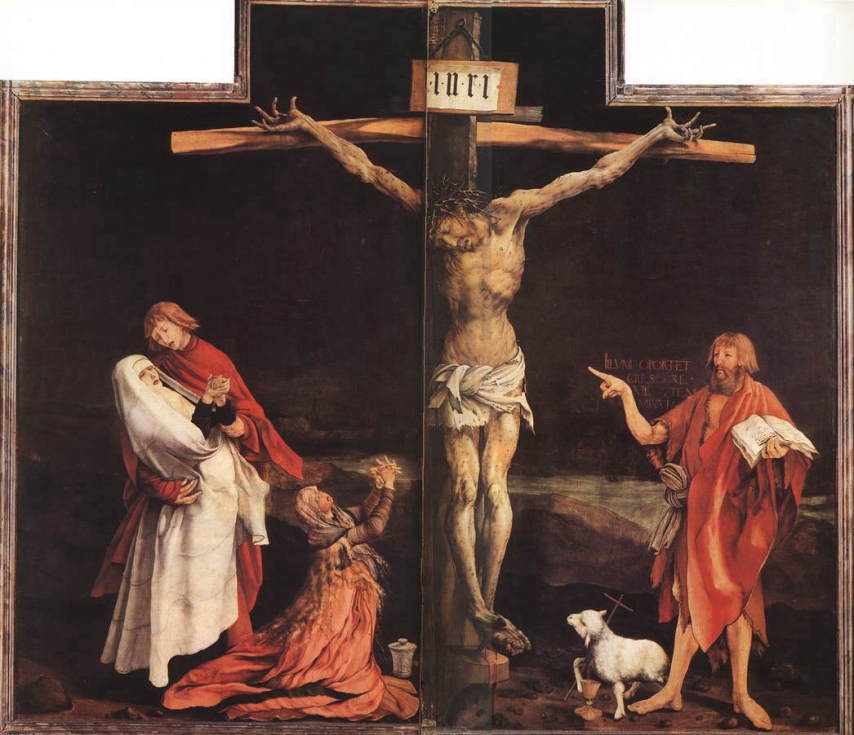
Note John the Baptist at right—as the last of the old covenant prophets,
he points to Jesus as the one source of salvation.
(public domain via Wikimedia Commons)
Justification in Christ
It is common to believe that though God justifies us in Christ, justification only becomes actual for individuals when they profess personal faith in Christ. Only then, it is believed, will God forgive and reconcile them to himself. The mistake in this line of reasoning is believing that our personal decision for Christ triggers a change in God’s mind toward us, thus changing the way God relates to us. But that thinking turns our relationship with God into a sort of contract wherein God sets out certain conditions for him to extend to us the benefits of Christ’s justifying work.
According to this faulty reasoning, our personal response to God (our faith) conditions God’s response to us. The net result is to view God as having two minds concerning his human creatures. Which mind he has depends upon our human response to a potential—with God being for some (and their salvation), and against others (wanting their damnation). Who Jesus Christ is and what he has done, then, only represents God’s mind, heart and purposes toward a few, namely those who respond appropriately to God with faith. Though perhaps unintentional, this reasoning misconstrues faith as a human work, with one’s response of faith becoming the central concern.
The nature and place of faith in our justification
To see faith as a human work misconstrues both faith and Jesus Christ. Faith is our response to the truth and reality of who God is and what he has done for us in Jesus. Because of who Jesus is (the God-man) and what he has done and is doing, God is for us, God is merciful, God is forgiving, God is saving. In Jesus, God has removed every obstacle to his being reconciled to us. In our place and on our behalf, Jesus has done for us what we could never do for ourselves. Faith, then, is our response to this truth—our response to a reality that has been accomplished for us already by and in Christ. Faith is the way we receive all the benefits that Christ has secured for us already.
Placing our faith (trust) in God is good and proper. We are obligated to trust in God since he is trustworthy and has clearly demonstrated that trustworthiness in Jesus Christ. To refuse to trust God for his grace is sin. But some will ask: “What if I don’t have sufficient faith?” The answer is that God, by the gracious work of the Holy Spirit, gives us the gift of sharing in Jesus’ own faith in his Father. When it comes to salvation, we do not count on the strength and purity of our own faith. Instead, we trust Jesus, who as our great high priest, offers his perfect faith to the Father on our behalf. By the Spirit Jesus draws us up to share more and more in his perfect response to the Father.
It is vital to understand that our response of faith toward God is not on our own. In responding to God, we share in the gift of Jesus’ own response. The Torrance brothers referred to this as the dual mediation of Christ. Jesus not only mediates God’s blessings to us, but he, in our place and on our behalf, mediates our responses to God. Note this from T.F. Torrance:
Through union with [Christ] we share in his faith, in his obedience, in his trust and appropriation of the Father’s blessing; we share in his justification before God. Therefore when we are justified by faith, this does not mean that it is our faith that justifies us, far from it—it is the faith of Christ alone that justifies us, but we in faith flee from our own acts even of repentance, confession, trust and response, and take refuge in the obedience and faithfulness of Christ—“Lord I believe, help thou mine unbelief.” That is what it means to be justified by faith. [1]
The gospel truth is that Jesus Christ himself is our justification. Our justification is the “once and for all” reality that has been fulfilled both objectively and subjectively [2] by Jesus, on our behalf, in his own human (subjective) response to the Father, by the Spirit (1 Corinthians 1:30 ESV). Justification is thus not about what we do—it’s about what Jesus has done, is doing, and will continue to do as our substitute and representative. Therefore we rightfully say that we are justified by the grace of God in Jesus Christ—a grace we receive by the gift of faith.
Sanctification in Christ
In speaking of our sharing in Jesus’ own faith for our justification, we have already begun to speak of our sanctification. Sanctification is the process of growing up in Christ—of sharing more and more in Jesus’ perfect responses to the Father in the Spirit. By God’s justifying work, we are put in right relationship with God, and by God’s sanctifying work we begin to respond as we share by the Spirit in Christ’s responses for us. As we do so, we share more and more in Jesus’ sanctification of the human nature that he continues to share with all human beings.
You will recall that Jesus, who never sinned, was baptized, thus confessing sin on our behalf. As human, he also grew in wisdom and stature and learned obedience. In his humanity he overcame temptation. In the power of the Spirit he sanctified himself and prayed for our sanctification. Jesus then gave himself up on the cross as his final act of faithful obedience to his Father, by the Spirit. Jesus did all these things for us—for our sanctification. As Paul declares, Jesus not only is our justification (righteousness), he also is our sanctification (1 Corinthians 1:30 ESV).
Sanctification is no less a gift of God’s grace than is justification. Like justification, sanctification is God’s work that we, by the Spirit, receive as we trust God to do that sanctifying work in us. What Christ has done for us in his incarnate life, the Spirit works out in us. As Karl Barth wrote, God “sanctifies the unholy by his action with and towards them, i.e., gives them a derivative and limited, but supremely real, share in his own holiness.” [3]
To be sanctified is to be set apart as holy, and it should be obvious that we cannot do that of ourselves. It is God who sanctifies us. Paul noted that Jesus took upon himself our unholiness (sin), “so that in him we might become the righteousness of God” (2 Corinthians 5:21 ESV). It is Jesus’ own holiness that he imparts to us by his action as one of us and on our behalf. As the author of Hebrews notes, “We have been sanctified through the offering of the body of Jesus Christ once for all” (Hebrews 10:10 NASB). For emphasis, the author then repeats his point: “For by one offering he has perfected for all time those who are sanctified” (Hebrews 10:14 NASB).
Our sanctification (holiness) is Jesus’ own sanctification. As C.S. Lewis wrote, “Holiness is not a result of self-willed moral effort but is a divine activity.” It is God’s presence and activity to express his holy character in man by his grace through Jesus Christ. We are always dependent upon God. As Paul explained to the church in Thessalonica, our sanctification is God’s will (1 Thessalonians 4:3 ESV). When we realize that our holiness is not our own, but is from, through, and by Jesus, our conduct will be exemplified by humility (not a holier-than-thou attitude) as we follow the lead of the Spirit in sharing in Jesus’ own holiness.
From start to finish, it’s about Jesus
From start to finish, both justification and sanctification depend entirely upon Jesus—on who he is (the God-man), and on what he has done and continues to do, by the Spirit, in his human nature as our representative and substitute. Therefore we trust Jesus—we participate in his faith (faithfulness) as the “author and finisher” of our faith, including our justification and sanctification.
Delighted to be justified and sanctified in Jesus,
Joseph Tkach
_________________
[1] “Justification: Its Radical Nature and Place in Reformed Doctrine and Life.” Scottish Journal of Theology, volume 13, no 3. pp. 225-246.
[2] Note here a subtle, yet important point: We must avoid the mistake of dividing justification into objective and subjective parts, with the objective being what Jesus does, and the subjective being what we do. That mistake implies that we, somehow separate from Jesus, respond to God on our own. Were that true, we’d be thrown back on ourselves apart from Jesus. Thankfully, the truth is that we personally (subjectively) participate in Jesus’ own (subjective) response made in his humanity on our behalf. Jesus does not just do the objective work in our justification and sanctification—his work is both objective and subjective, and in both cases that work is done in our place and on our behalf. So, how then do we talk about a “personal response” to Jesus without creating the problem mentioned above? The Torrance brothers did so by referring to Jesus’ subjective (personal) responses and of our sharing, through the Spirit, in Jesus’ own subjective responses.
[3] Church Dogmatics, volume IV, page 500.
Connecting and Bonding conference
On March 11-13, Jannice May and her assistants hosted the 11th Connecting and Bonding conference in Lexington, Kentucky. The theme, Why Talk to God?, was based on Jeremiah 33:3.
The joy-filled, prayer-charged and word-based conference brought together 20 women (pictured above). United by their high calling in Jesus, the group relaxed, laughed, cried and shared from the heart. Wives of retired pastors were honored for their many years of faithful service. Worship minister Keysha Taylor led times of powerful worship. Pastor Jeanne Moore, the main speaker, showed the group the importance of maintaining balance in all aspects of life, and led the group through the Lord’s prayer as a guide for their prayer life. The group watched and discussed the movie “War Room” and a recorded message from Dr. Sylvia Hart Frejd on the “digital invasion” and the necessity of staying connected to Jesus, ourselves and others. A highlight of the conference was a white elephant gift exchange where their love for one another was tested (in jest, of course).
The group left with batteries recharged and a readiness to share what they had experienced with others back home.
GCnext gathering for young adults
 Generations Ministries recently announced a GCnext gathering for young adults (age 18-28) that will be held in Durham, North Carolina, over the Martin Luther King holiday weekend in 2017 (January 13-16). The purpose of the gathering is to equip and empower young emerging leaders for their ministry with Jesus in and through the church.
Generations Ministries recently announced a GCnext gathering for young adults (age 18-28) that will be held in Durham, North Carolina, over the Martin Luther King holiday weekend in 2017 (January 13-16). The purpose of the gathering is to equip and empower young emerging leaders for their ministry with Jesus in and through the church.
Below is a video announcement about the event. Please share it with the young adults in your congregation and/or ministry. Those who wish to be included on a mailing list for future announcements about the event should email Andy Rooney at andrew.michael.rooney@gmail.com.
On YouTube at http://youtu.be/2sA7arSDgTU.
The new Equipper

Each issue of the new digital version of Equipper has several articles linked in the right-hand column of each page. Here are the articles in the current (March) issue—click on the link to read each one:
- Keys for renewal in our churches (from Greg Williams)
- Ministry rhythms that lead to renewal (from Heber Ticas)
- Recommended discipleship resource (from Calvin Simon)
- Here’s what renewal looks like (from Rick Shallenberger)
- Sermon summary: Forget being forgotten (from Lance McKinnon)
- Announcement: using the new Equipper (from Ted Johnston)
Easter from a cosmic perspective
Dear Brothers and Sisters,
 Perhaps you’ll chuckle when I tell you that Does Anybody Really Know What Time It Is?, by the rock group Chicago, is my favorite Easter song. Though it’s not about Jesus’ resurrection, it does raise questions about time that my dear friend John McKenna addressed in a conversation we had some time ago in which he made this mind-boggling statement: The resurrection and ascension of Jesus changed all time! That idea had not occurred to me before, and I still grapple with it. But after more talks with John and a good bit of reading, I want to share with you in this letter some thoughts about Easter from a cosmic perspective.
Perhaps you’ll chuckle when I tell you that Does Anybody Really Know What Time It Is?, by the rock group Chicago, is my favorite Easter song. Though it’s not about Jesus’ resurrection, it does raise questions about time that my dear friend John McKenna addressed in a conversation we had some time ago in which he made this mind-boggling statement: The resurrection and ascension of Jesus changed all time! That idea had not occurred to me before, and I still grapple with it. But after more talks with John and a good bit of reading, I want to share with you in this letter some thoughts about Easter from a cosmic perspective.
What is time?

The question What is time? has perplexed theologians, philosophers and scientists for millennia as they wondered what kind of “thing” time actually is. Sir Isaac Newton (1642-1726) thought of it as an independent thing flowing forward without relationship to any eternal thing. According to his view, time has no beginning or end, and in that way is absolute, like God (who is thought of as existing eternally along with space and time, and perhaps even contained within space and time).

Gottfried Wilhelm Leibnitz (1646-1716) challenged Newton’s conception of time, offering instead a relational view that sees time as coming from a succession of events in the universe. According to that view, it is absurd to conceive of time as existing independently of those events.
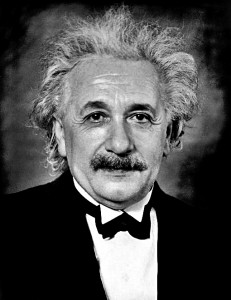
Two hundred years later, Albert Einstein (1879-1955), in his special theory of relativity, proposed a way of thinking about time that disagreed with Newton and agreed, in part, with Leibnitz. According to Einstein, rather than being distinct and separate, space and time are connected in a “space-time continuum” in which objects in motion experience time at a slower rate than those at rest. For example, a person moving through space-time experiences it differently at varying points, with time appearing to move more slowly near a massive object in space because space is curved or warped by the object’s mass. Einstein’s theory has been proven accurate by atomic clock experiments. When an atomic clock sent into space and returns, it is “off” from the time of a similar clock that had remained stationary.

In A Brief History of Time, physicist Stephen Hawking (b. 1942) notes that space-time began at a moment called the “singularity” (others call it the “big bang”). Though the concept of a big bang is compatible with the Bible’s creation accounts, Hawking avoids any idea that a supernatural agent (god) is needed to bring about the singularity, postulating instead a “multiverse” that gave rise to our universe. Though this concept cannot be tested or falsified (it is pure philosophical speculation), the idea of a multiverse is popular among atheistic scientists to avoid theistic explanations for the big bang.
It strikes me as ironic that atheists claim God’s existence unprovable, while adopting a hypothesis that, being unprovable, has no scientific value. There are no experiments that could be run to prove or disprove the existence of a multiverse. To run such experiments one would have to exist outside our universe in one of the alternative ones where there would be entirely different physics, chemistry, space and time, etc. than ours—one where humans could not exist or run experiments like the ones we do in our universe.
The God we worship is not a created “thing” and thus not subject to the limits of his creation. Biblical and theological language indicates this by speaking of God as being the Creator of everything that exists that is not God. Only God is self-existent and all else is dependent upon God for existence, and that includes space and time, since they are not God and God is not space and time. Both space and time are part of God’s creation over which he is sovereign and from which he is independent. God cannot be “contained” by anything he has created, including space and time. To think otherwise would be to blur the distinction between creator and creation.
What is eternity?
A common mistake is to think of eternity in terms of created time—viewing eternity as sequential moments that stretch back into the past and forward into the future. Thinking of eternity in terms of created time is simply wrong. It’s also wrong to think of God as if he were a creature who has been around for a very long time. The Bible speaks of God and eternity in ways that transcend created time. God exists over, above and outside created time. He is not contained by created time, nor is he contained by eternity (since eternity is not finite in any sense, and thus has no boundaries). I know that these ideas about time, eternity and God are difficult for us to grasp, because it’s hard for us to think timelessly, however we must not think of God in ways that do not apply to him.
How is God related to time?
Having noted the difference between time and eternity, we can now consider God’s relationship with created time. We can grasp more fully the concept of God’s sovereignty over time by considering the implications of Jesus’ death and resurrection within time. Knowing that Jesus conquered death, opening the door for us to eternal life with God, we are able to grasp the stunning truth that Jesus’ resurrection broke the normal bounds of time as we know it. With the death and resurrection of Jesus, all time was changed, as God’s relationship with humanity changed forever human destiny. With that change came a resultant change in the relationship between created time (our time) and God.
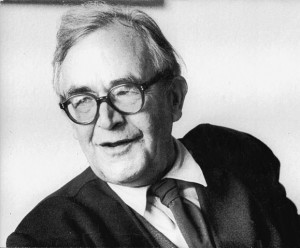
This truth was grasped by theologian Karl Barth (1886-1968), who realized that Jesus (who was and is both divine and human), through his death and resurrection brought eternity into deepest connection with temporality. Through his life, death, resurrection and ascension, Jesus forged a new relationship of God with humanity, which involves a new relationship of God with time.
As God’s eternal Son, the pre-incarnate Jesus preexisted the creation of time. Coming from outside created time, he entered into it, becoming the contemporary of all humanity, taking on life as a mortal (subject to death) human. As Jesus revealed to the apostle John, he is the one “who was, and is, and is to come” (Revelation 4:8). But he also is the one who, assuming a mortal nature, died in our place and on our behalf, and then was raised to eternal life (immortality) in our place and on our behalf (1 Corinthians 15:35-58). In him our mortal human nature is raised up to share in his immortality, that is, in his eternal relationship with the Father and the Spirit.
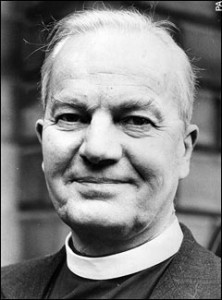
T. F. Torrance (1913-2007) also wrote about this truth, noting that God, through the incarnation of the eternal Son of God, entered our time and space, assumed our fallen human nature, and within our temporal reality lived, suffered, died, was raised and then ascended to bring us through death to eternal life in fellowship and communion with the eternal God.
During the 40 days between Jesus’ resurrection and ascension, we see evidence of the astounding transformation that Jesus accomplished in his saving work on our behalf. During that time (now possessing a resurrected human body), Jesus, more clearly than before, manifested to his disciples the difference made by the new relationship between God and humanity that had been forged in him. Though Peter, James and John had glimpsed something of Jesus’ full glory at the transfiguration, now all his disciples beheld it as Jesus appeared and disappeared before and among them. It became evident to them that Jesus had authority over space and time as well as over life and death. Jesus’ earthly work involved a transfiguration of the relationship between God and humanity that, necessarily, involved the transformation of the temporal and spatial relations in which human life exists (without that life ceasing to be creaturely human life).
Our place, with Christ, in time and eternity

(public domain via Wikimedia Commons)
In his post-resurrection appearances among his followers, we get a glimpse in Jesus of the stunning reality that the boundary of physical time had been breached and God’s eternity had entered space and time, making a way for us to relate to that which transcends space and time. In other words, the new life in Christ moves us beyond our past and present, propelling us into the future as Jesus takes us with him in his ascension. According to Paul in Ephesians 2:6, even now, we are “seated…in the heavenly realms in Christ Jesus.”
As Barth noted, though we live in time (experiencing it moment-by-moment in linear fashion), in Jesus, we also live outside of time. In his ascension Jesus took us with him into the future. As he said on the cross, “It is finished.” From the standpoint of the present, we see our existence in time as our past, our present and our future. And, of course, we aren’t always sure of the future because, from the perspective of our experience, we realize we cannot secure our own existence in time, which is beyond our control. But hear this good news: Time is never beyond God’s control! He gave us life both in space-time and also outside that dimension—a life we refer to as “eternal life.” Yes, we live and die our temporal lives, but the gospel declares that we’ve already been given a share in God’s own eternal life. To paraphrase Paul (who had to invent new words to convey this astounding truth), we “co-die” with Christ, we are “co-raised” with Christ, and so we now “co-live” with Christ (Romans 6:5-14; Romans 8:11-17; 2 Corinthians 5:14-17).
Our relationship with God never stops and cannot be interrupted or destroyed by space and time. That’s good news because we can then understand that death does not disrupt our relationship with God. The profound story of Easter is that our physical death is no longer our ultimate, final frontier—God in his sovereignty has, in Christ, taken us beyond that frontier. Easter is the definitive demonstration of God’s power over death. In his resurrection, Jesus destroyed the sting of death, showing us that death is only the end of the temporal; it does not alter the eternal.
As you go through Holy Week, please join with me in praying that more people will come to understand and experience the power of the truth of Jesus’ resurrection. Though materialists view the resurrection as impossible, we know that Jesus’ life, death, resurrection and ascension happened in the reality of our space and time. Easter celebrates a history-making, time-altering reality.
Celebrating the wild ride with Jesus through space and time into eternity,
Joseph Tkach
Baptisms in the Netherlands
Dishon Mills
 Dishon Mills, who pastors GCI congregations in the Boston, Massachusetts area, will be having oral surgery on April 13 to address a growth in the bone below the gum line that is pushing on a wisdom tooth and thus weakening the jaw and causing a good deal of pain.
Dishon Mills, who pastors GCI congregations in the Boston, Massachusetts area, will be having oral surgery on April 13 to address a growth in the bone below the gum line that is pushing on a wisdom tooth and thus weakening the jaw and causing a good deal of pain.
If the surgery goes well, he will resume his duties a day or two after surgery and resume a normal diet in 4-6 weeks. However, there are three potential complications: 1) the surgery could sever the nerve leaving him with permanent numbness in part of his lip (highly possible); 2) his jawbone could break, resulting in his jaw needing to be wired shut for 4-6 weeks (possible); and 3) the cyst could contain cancer cells necessitating multiple dramatic surgeries (unlikely).
Dishon is trusting God for the outcome, and asks for prayer that the surgery and recovery will proceed without complications.
Cards may be sent to:
Dishon Mills
2 Junior Terrace
Randolph, MA 02368-5137
Intern Program update
Here is a video update on GCI’s Intern Program from program coordinator Jeff McSwain:
On YouTube at http://youtu.be/J7to2leIFRA
Ethics for pastors

The calling to serve the body of Christ as a pastor brings with it a call to high ethical standards that flow from the New Testament exhortations to pastors/elders/overseers—see, for example, 1 Timothy 3:1-7 and Titus 1:6-9.
It is common (and appropriate) for Christian institutions and denominations to follow these biblical instructions in publishing a code of ethics for elders. The National Association of Evangelicals has done so in a code of ethics for pastors (http://nae.net/code-of-ethics-for-pastors/) as has Grace Communion International in a code of ethics for elders (http://www.gci.org/church/ministry/codeethics).
Candidates for ordination as elders and for appointment as pastors, pastoral team members and fellowship group facilitators within GCI in the U.S. complete an application that includes affirmation that their behavior aligns with and will continue to align with GCI’s code of ethics for elders.
Our thanks to these men and women for their commitment to live and minister in this way. In doing so, they lead us by example in the way of Jesus. Let us all pray for them in this great responsibility.





